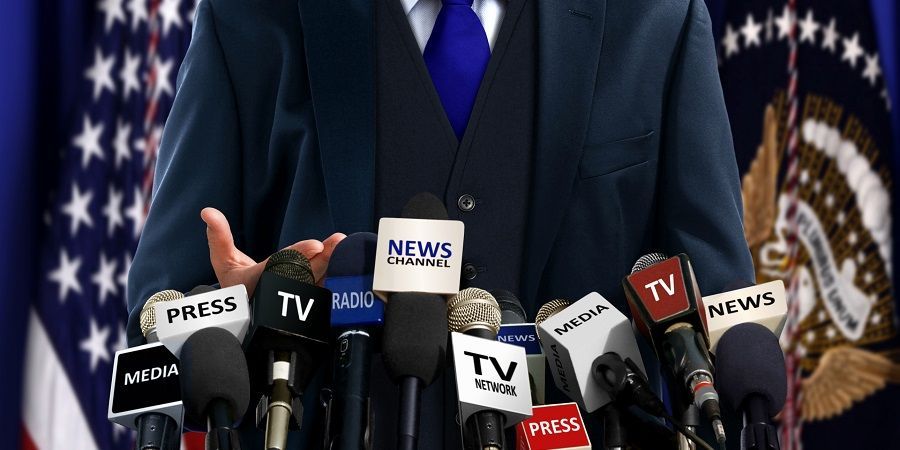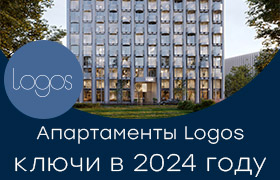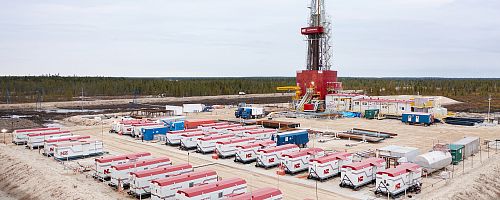Putin Will Stay 'as Long as Needed'
President Vladimir Putin on Thursday laid out a vision of the future in which he would serve as a strong prime minister for as long as necessary during the presidency of his favored successor, Dmitry Medvedev. Putin also had sharp words for foreig.

Putin also had sharp words for foreign critics at his last annual Kremlin news conference before he leaves office in May. At one point during the marathon 4 1/2-hour session, he said European election observers should quit hassling Russia and go "teach their wives to cook cabbage soup."
Putin said he would be content with the government's No. 2 post if Medvedev, a first deputy prime minister and longtime Putin loyalist who is the overwhelming favorite to win the March 2 presidential election, is voted into office and offers him the job.
The duo could then achieve the goals that the president outlined last week in a speech dedicated to Russia's prospects through 2020, Putin said.
"If I see that in this post I can continue realizing these goals, then I will work as long as possible," he said.
Putin said he would have "no problem" sharing power with Medvedev and listed the prime minister's responsibilities as shaping the budget, managing the economy, overseeing social policy and guaranteeing national security.
"The president is the guarantor of the Constitution, and he sets the main directions of domestic and foreign policy," Putin said. "But the highest executive authority in the country is the government, which is led by the prime minister."
Putin portrayed himself as a firm believer in the rule of law who had never been seduced by the trappings of power.
"I was never tempted to stay for a third term," Putin said. "Never. From my first day of work as president of Russia, I decided for myself that I would not violate the existing Constitution."
The liveliest moments of the news conference came when Putin defended Russia's political system and foreign policy in response to questions from foreign reporters.
At one point, he lashed out at the election watchdog of the Organization for Security and Cooperation in Europe, which last week refused to send election observers to Russia after Moscow refused to meet its conditions.
"They are trying to teach us something," Putin said. "Let them teach their wives to cook cabbage soup."
When a German reporter asked why Medvedev was not participating in televised debates with his three opponents, Putin insisted that the election was being held fairly and said its predictability was due to the country's economic stability.
"The election campaign is going normally," Putin said. "The fact that it is proceeding calmly, without all these debates, without stirring up the country, is not because we lack democratic procedures. It is because the overwhelming majority of Russian citizens support the course we have chosen and carried out in the last few years."
Putin singled out growth as the key factor behind the predictability of the election. "Wages have grown more than 16 percent in the past year," he said. "That's the answer to your question."
Medvedev did not need to participate in debates where the country's problems would "clearly be cast in a populist light," Putin said.
Putin also went on the offensive when asked about the 7 percent barrier to entering the State Duma, which has been criticized as a Kremlin technique for keeping opposition parties out of power.
"Look at our neighbors, like Ukraine," he said, in an apparent reference to Ukraine's struggles to form a government and choose a prime minister. "They have a 3 percent barrier for entering the Rada. So what? Do you like what is happening there?"
No New Cold War
On matters of foreign policy, Putin repeatedly stressed that Russia had no aggressive intentions and criticized the "double standards" of the West on issues such as independence for Kosovo, which Moscow opposes.
Putin said it was inconsistent for the West to back Kosovo's efforts to break free from Serbia while simultaneously ignoring independence movements in Northern Ireland and the Basque region of Spain.
"Everyone always tells us that Kosovo is a special case," Putin said. "These are lies."
He indicated, however, that Russia would not "monkey around" if Kosovo declared independence and the West recognized it. "If someone makes a foolish, unlawful decision, that does not mean we have to do the same thing," Putin said.
Several foreign reporters asked Putin about the prospect of a new Cold War, referring to recent moves, such as Russia's threat to target Poland and the Czech Republic if the countries agree to host elements of a U.S. missile-defense shield.
"We have no intention of targeting anyone unless we absolutely have to," Putin said, stressing that Russia had no choice but to take retaliatory steps against U.S. plans.
He criticized Washington for plowing ahead with its missile-defense plans without consulting NATO or even getting approval from the majority of Poles and Czechs.
"Who asked the Poles if they want these systems or not?" he said. "Who asked them? According to the figures I have seen, the overwhelming majority of Czech citizens are not enthusiastic about these plans."
He told a Fox News reporter that the resumption of long-range bomber flights did not signal a return to Cold War aggression but was simply a reciprocal measure. The United States carries out such flights, sometimes coming close to Russia's borders, even though Moscow stopped its own long-range patrols in the late 1980s, Putin said.
Occasionally, Putin poked fun at the West for what he called an overreaction to some of Moscow's foreign policy moves, such as last year's symbolic planting of a Russian flag on the North Pole seabed.
"Don't worry, everything will be fine," Putin said. "I was even a little surprised at the nervous reaction of our Canadian colleagues. Back in the day, the Americans put a flag on the moon, and what happened? What are you so worried about? The moon did not become U.S. property."
Canadian Prime Minister Stephen Harper said his country would bolster its military presence in the Arctic after the Russian flag-planting expedition.
Addressing Russia's image in the Western media, Putin revealed some of his thinking about how the West tries to control Russia.
"We know, without a doubt, that some governments have a monopoly on global media outlets and that, of course, the political centers of these countries use such channels to influence our population, as well as the populations of Europe and North America," he said.
He singled out foreign criticism of Russian elections, which, he said, is used to discredit Moscow's foreign policy. "Who is going to listen to Russia's position on Kosovo if Russia itself is supposedly an undemocratic country?" he asked.
Looking Back
Many reporters asked Putin about his legacy and what he considers his biggest achievements.
His main accomplishments, Putin said, were rebuilding the economy and centralizing authority in a country that had been fractured and impoverished when he took office in 2000. "Essentially, we did not have a unified country," he said. "We didn't even have an anthem. Each region had its own constitution."
When asked where he had failed, Putin's answer was confident. "I don't see any serious failures," he said. "All the goals we have set out for ourselves have been achieved."
He later conceded, though, that the government had failed to tame inflation and that corruption had remained an intractable problem.
Putin insisted repeatedly that he had done everything in his power to improve the lot of the Russian people. "All these eight years, I have worked like a slave in the galleys," he said. "From day to night, I gave it all my strength."
Many reporters in the audience seemed sympathetic, and one asked what Putin would do the day after his presidency ended. "I'll get a good night's sleep," he said.













